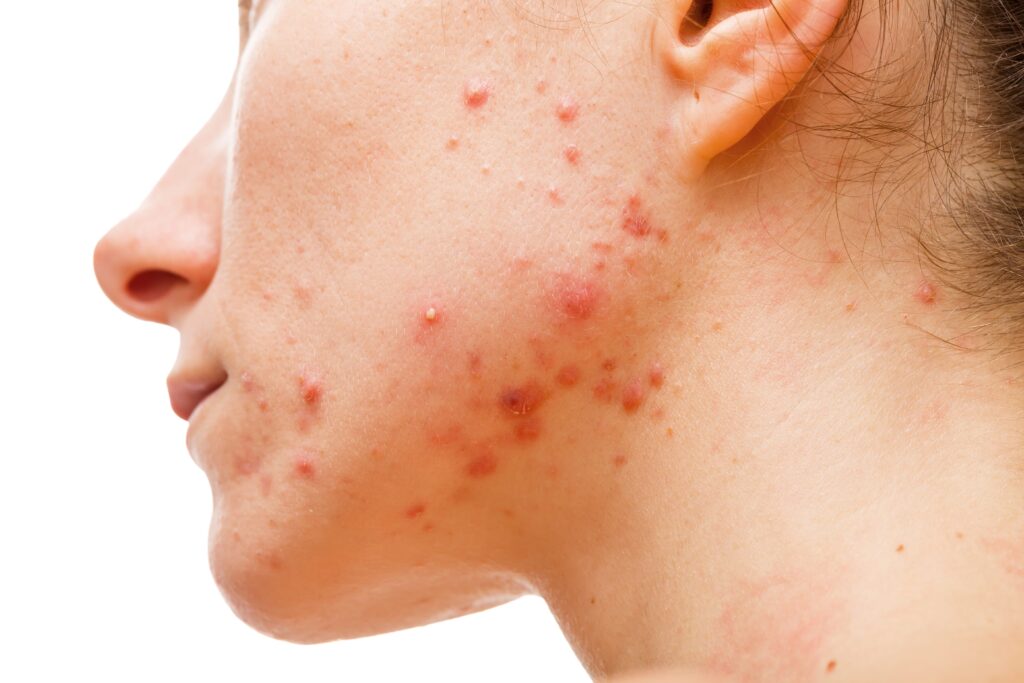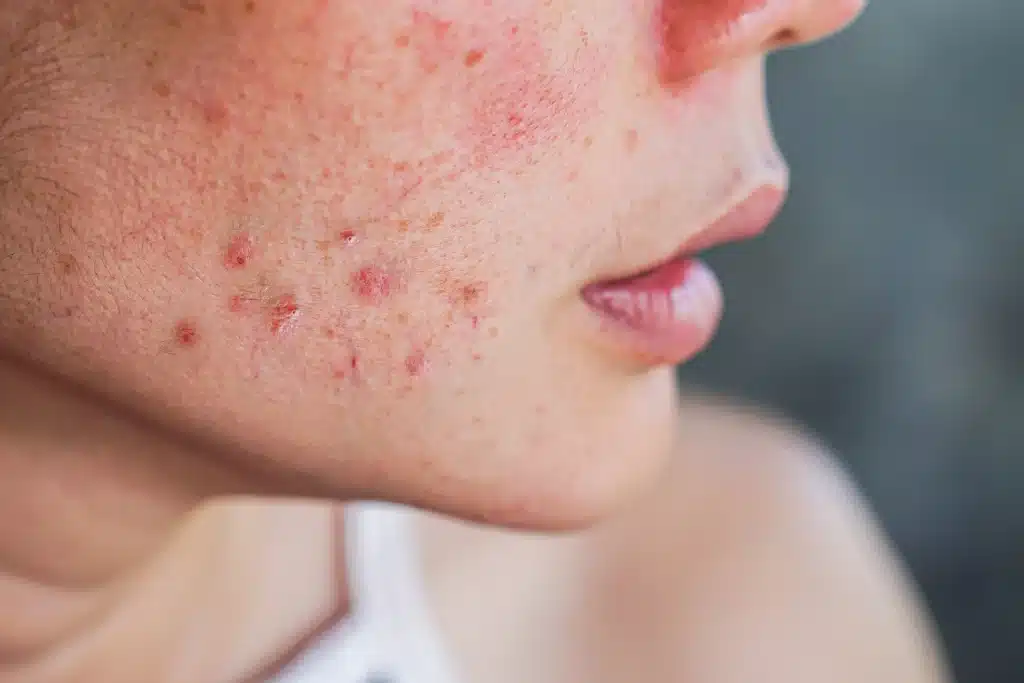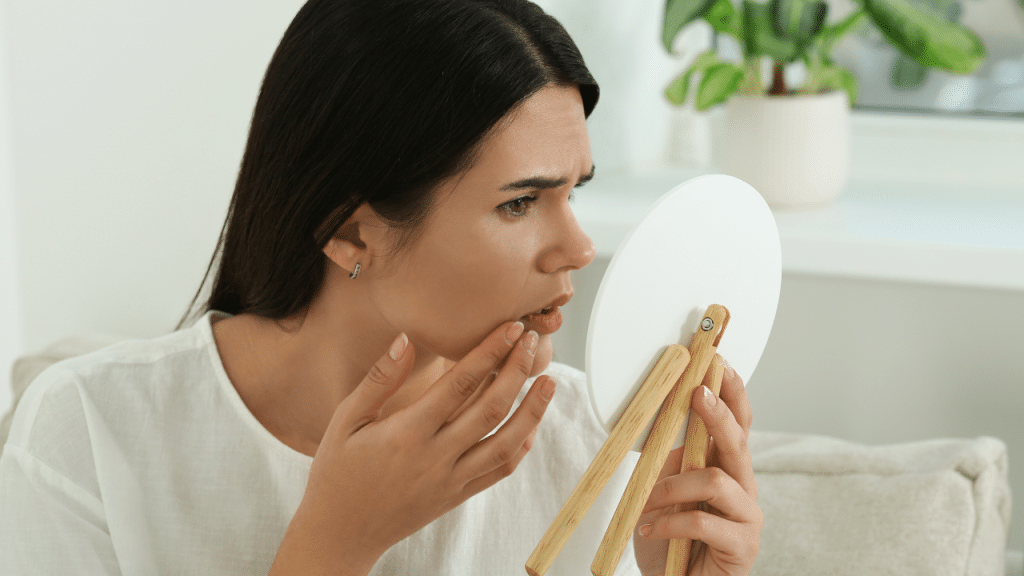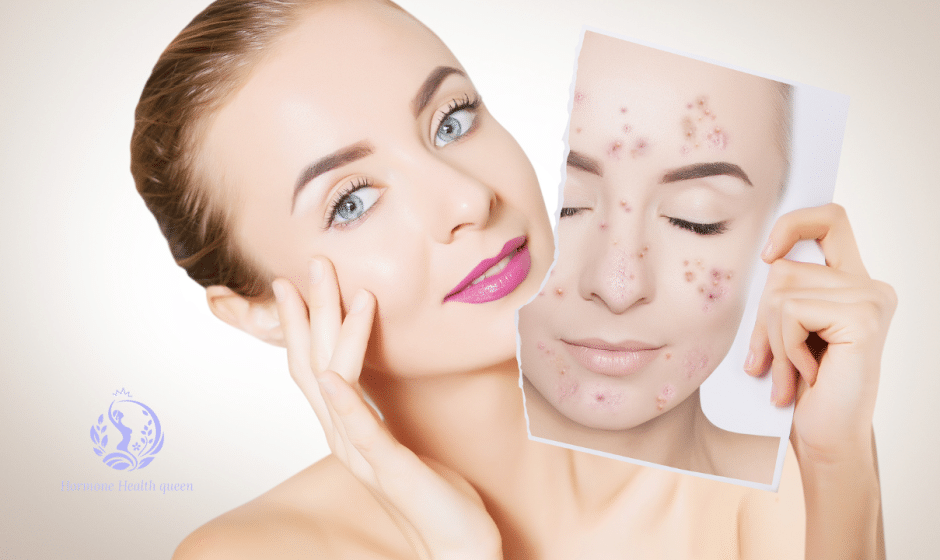Hormonal acne is a persistent concern for many women, often flaring up around the menstrual cycle, during pregnancy, or in menopause. While the physical symptoms are challenging, the emotional toll can be just as significant. Understanding the underlying causes, effective treatments, and the psychological impact of hormonal acne is key to managing both your skin and your well-being.
What Causes Hormonal Acne?

Hormonal acne is primarily driven by fluctuations in sex hormones—especially estrogen, progesterone, and androgens like testosterone. These changes can increase oil (sebum) production, clog pores, and create an environment where acne-causing bacteria thrive (1).
When Does It Flare Up?
- Menstrual Cycle: Estrogen and progesterone levels drop before your period, while testosterone remains steady. This hormonal shift increases sebum production, leading to clogged pores and breakouts, especially on the lower face, jawline, and neck (2).
- Pregnancy: Hormonal fluctuations, especially in the first trimester, can trigger or worsen acne.
- Menopause: Declining estrogen and steady testosterone can cause new or recurring acne, often on the face, jawline, and back.
Effective Treatments for Hormonal Acne

Managing hormonal acne often requires a combination of topical treatments, lifestyle changes, and sometimes medical intervention.
Topical Treatments
- Retinoids: Over-the-counter or prescription retinoids (like adapalene or tretinoin) help unclog pores and reduce inflammation1.
- Benzoyl Peroxide & Salicylic Acid: These ingredients target bacteria and exfoliate the skin (1).
- Azelaic Acid: Reduces redness and helps prevent clogged pores.
Oral Medications
- Hormonal therapies: Birth control pills or anti-androgens may be prescribed to regulate hormone levels and reduce sebum production (3).
- Antibiotics: Sometimes used for moderate to severe cases to reduce bacteria and inflammation.
Lifestyle Adjustments
- Diet: Some evidence suggests that reducing dairy and high-glycemic foods may help some women (1).
- Stress management: Mindfulness, exercise, and adequate sleep can help regulate hormones and reduce flare-ups.
For more on treatment options, see [Healthline’s guide to hormonal acne]1.
The Emotional Impact of Hormonal Acne
Hormonal acne affects more than just your skin—it can deeply impact your self-esteem, confidence, and mental health.
- Low self-esteem and self-consciousness: Many women report feeling less attractive, embarrassed, or frustrated by their skin.
- Anxiety and depression: Studies show that women with acne are more likely to experience anxiety or depression. The emotional burden can be especially high for adult women, who may feel acne is a “teenage problem.”
- Social withdrawal: Acne can lead to avoiding social situations, reduced participation in activities, and even impact work or school performance.
- Quality of life: The psychological effects of acne can persist even after the physical symptoms improve, highlighting the need for holistic care that addresses both skin and emotional health.

FAQs About Hormonal Acne
Q1: How do I know if my acne is hormonal?
A: Hormonal acne often appears as deep, cystic breakouts on the lower face, jawline, and neck, especially before your period, during pregnancy, or around menopause (2).
Q2: Can stress make hormonal acne worse?
A: Yes. Stress increases cortisol, which can boost oil production and worsen breakouts (1).
Q3: Are there natural remedies for hormonal acne?
A: Some find relief with tea tree oil, green tea extract, or dietary changes, but results vary. Always patch test new products and consult a dermatologist for persistent acne (2).
Q4: When should I seek professional help?
A: If your acne is severe, persistent, or affecting your mental health, see a dermatologist and consider support from a mental health professional.
Ready to take control of your skin and well-being?
Visit HormoneHealthQueen.com for expert advice on managing hormonal acne, mental health support, and community forums where you can share your journey.
Follow us on social media for daily tips, inspiration, and the latest in women’s hormonal health!



